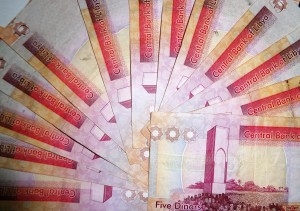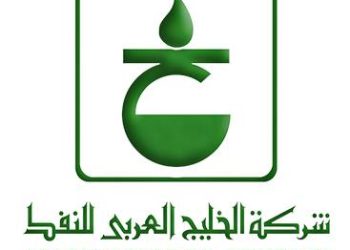By Sami Zaptia.

London, 23 April 2016:
The Libyan Audit Bureau says that the Libyan banking sector proved ‘’weak’’ when faced with the . . .[restrict]current cash crises. The prognosis was made in its 2015 Annual Report (page 214 Arabic copy) released last week.
The cash shortage crises, that has led to queues at banks and cash limits of LD 250 at banks that have any cash at all, has proved that the Libyan banking sector was inflexible and unable to adjust to a new environment, the report said.
This weakness exists, it said, despite the presence of ‘’foreign partners’’ in some Libyan banks and despite the investment of ‘’millions’’ in new systems.
The report said that about LD 24 bn of cash was circulating in the Libyan banking system up to 31/12/15. This had risen from LD 15 bn in 2013 and LD 19 bn in 2014.
This increase in cash in the banking system from LD 15 bn in 2013 to LD 24 bn in 2015 is evidence that the cash crises in Libya is a crises of lack of political confidence and political division in the country and the lack of security. It is not caused by a shortage in cash in circulation, the report concluded.
The Audit Bureau supports its assertion by revealing in its report the fact that bank deposits had decreased from LD 6 bn in 2013 down to LD 3 bn in 2015. It reveals that, including newly printed money released into the system, it estimates that LD 26 bn are available in the system.
On the much publicly debated matter of the newly printed money awaiting arrival, the report revealed that the contract for post February 17th 2011 banknotes is for LD 16.1 bn and that LD 8 bn has been delivered.
The balance of the LD 8 bn has not been received yet, the report confirmed, and upon its delivery, the Audit Bureau forecasts that the cash crises would be resolved in the short to medium term.
It will be recalled that both the Tripoli CBL and the Beida-based CBL, representing two different ‘‘governments’’, had recently revealed that they were expecting deliveries of new banknotes.
The Audit Bureau report said that while the cash shortage crises can be solved in the short term by either selling foreign currency or gold or by printing new money, it was not a long term solution. It warned that the effective solution is the ‘’strategic’’ reform of the Libyan banking system which would return confidence in the banking system.
It also recommended the increased use of debit cards and electronic Point of Sale (POS) systems and moving away from a cash-based society and economy. [/restrict]







